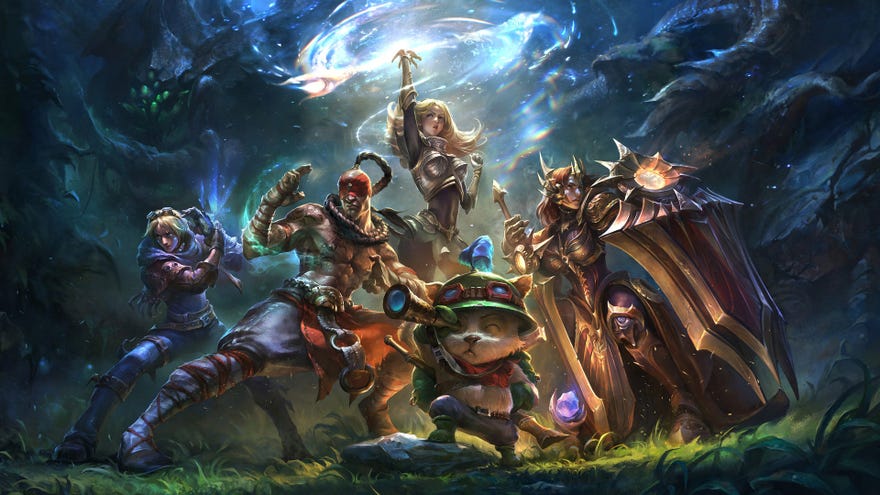Riot Games to end forced arbitration in sexual harrassment and assault claims - for new staff
Far from a blanket change!
Future Riot Games employees will be able to opt out of forced arbitration to pursue "individual sexual harassment and sexual assault claims" against the company, the League Of Legends developers have announced. Riot have faced accusations of widespread workplace harrassment and discrimination over the past year, of building a culture which protected perpetrators. Two female employees are currently trying to sue the company for discrimination, but Riot have tried to block these by saying their contracts forbid it and instead mandate arbitration, a private process of grievance-settling which favours employers. With some staff threatening an employee walkout to protest that, Riot are kinda sorta maybe-ish easing up a little on arbitration.
"As soon as current litigation is resolved, we will give all new Rioters the choice to opt-out of mandatory arbitration for individual sexual harassment and sexual assault claims," Riot said in the announcement overnight. "At that time, we will also commit to have a firm answer around expanding the scope and extending this opt-out to all Rioters."
So current employees are still forced into arbitration, and might be forever. People who join Riot right now will still sign contracts blocking court suits. All claims unrelated to sexual harrassment and assault might still be forced into arbitration. And it seems they're still trying to push those two current cases into private arbitration.
Forced arbitration as part of a contract says that employees can't sue their employer in a proper public court, only take cases to private arbitration. Arbitration skips the courts to have a private third-party arbiter make a legally-binding ruling. Studies and reports have shown (for example) that arbiters are more likely than courts to rule in favour of employers and, when they do side with employees, tend to award smaller payouts.
Arbitration is also a private process, which lets companies hide things they'd rather not be public. Riot say that their own arbitration agreement has no confidentiality clause, so employees can talk about their cases - but that's not the same as a court case generating public paperwork. Forced arbitration in the USA also allows employers to block class-action suits, which sure helps companies accused of problems affecting many people.
I don't know the full specifics of Riot's arbitration contract but arbitration tends to benefit employers far more than employees. See this Vox report for more on that.
Thousands of Google employees staged a walkout in 2018 following reports that the company had tried to sweep away claims of discrimination and harrassment. Google had even given one man a $90 million payout as they tried to quietly push him out following a claim of sexual misconduct, as reported by The New York Times. Ending arbitration was one demand of the walkout, which Google have since done.
"We know that this resolution will not satisfy all Rioters," Riot said, continue to use that awful word for employees as if it's not indicative of pushing people to buy into their garbage culture and identity. "We understand and respect Rioters who choose to protest this decision on Monday, and admire their conviction and willingness to stand up for their beliefs."
Riot have sworn blind that not only will they clean up their act, they will become "a leader on diversity, inclusion, and culture." Yet their actions continue to demonstrate they don't understand the problem. Fun fact: Scot Gelb, the chief operating officer who was reportedly accused of farting in male subordinates' faces, dry-humping them, and whacking their testicles, is still with the company. The company values and attitude which allowed him to do that for so long (and reportedly get off with only two months' unpaid suspension) are evidently still present.
Last night's post also laid out the company's plans for improving "diversity" and "inclusion" over the next 90 days. It's all good and well talking about launching "new anti-harassment training for all new hires" and planning to let future employees opt out of forced arbitration but what about current and past employees? Riot are trying to turn over a new leaf without even fully fessing up to--let alone addressing--past problems. Training for new employees does nothing for present problems. The company's talk, no matter how well-intentioned I'm sure their newly-formed diversity & inclusion team are, is hollow.

















